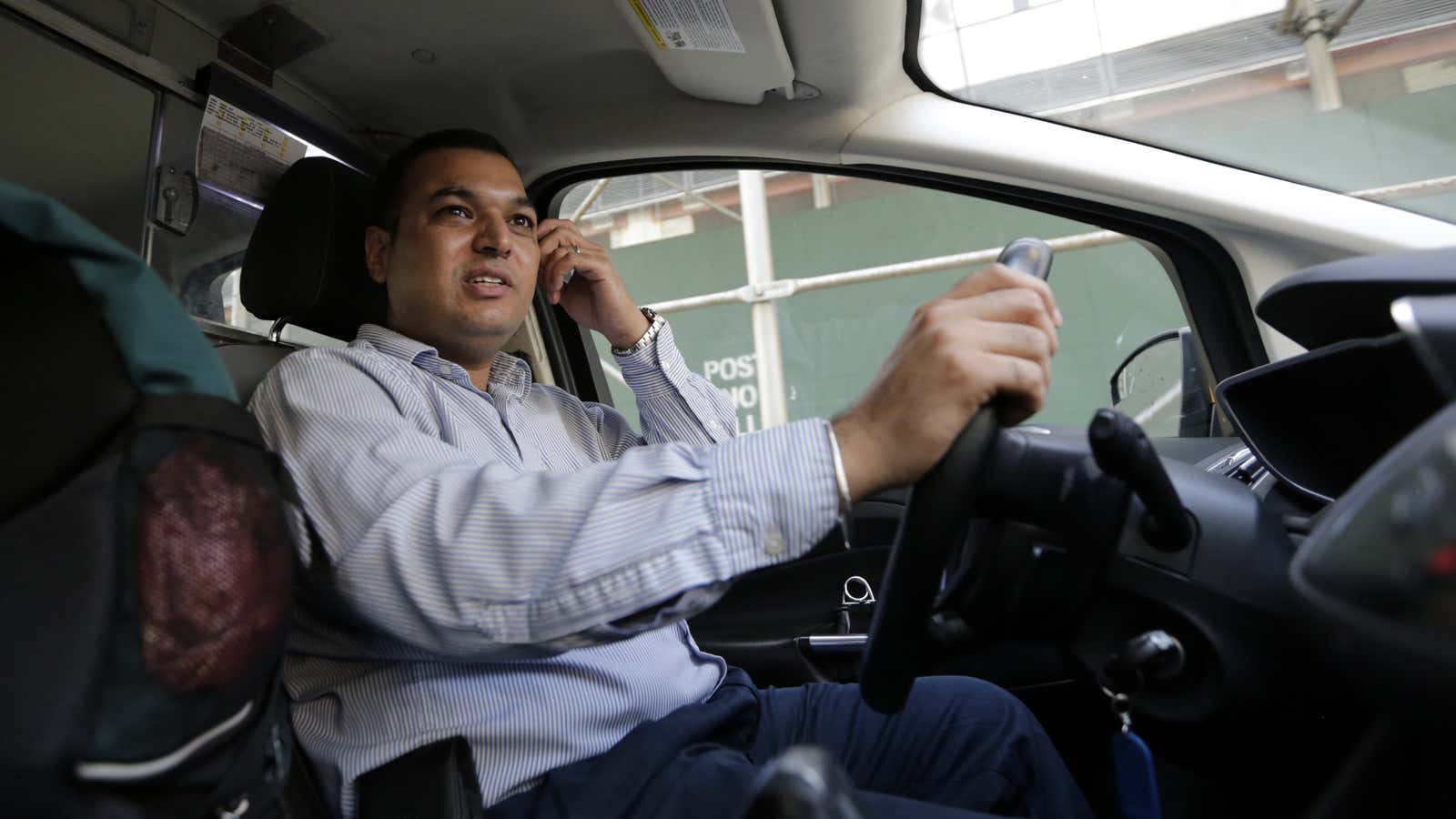Uber likes to say that its platform is an “important source of income” for drivers.
In January 2015, a study commissioned by Uber found that 24% of drivers said Uber was their only source of income, 16% described it as their largest, but not only, source, and 38% said it was a small supplement.
Here’s a new wrinkle: The more drivers rely on Uber, the poorer they’re likely to be.
That’s from the JPMorgan Chase Institute, the think-tank arm of JPMorgan Chase, which examined data on 196,000 checking account customers who earned income from at least one of 30 “sharing” or “gig” economy companies between October 2014 and September 2015. The institute divided these companies into two broad categories: “labor” platforms on which people invest their time and energy (e.g., Uber), and “capital” platforms on which they rent out an existing asset (e.g., Airbnb).
According to JPMorgan Chase’s data, people who work for labor platforms and are in the lowest income quintile (earning less than $30,000 a year) get nearly 30% of their earnings from those jobs. Labor platform participants in the highest income quintile ($83,900+), meanwhile, get only 20% of their income from such jobs. Earlier this year, economists Lawrence Katz and Alan Krueger found that Uber could make up half to two-thirds of all gig economy work.
Compare that to people making money on capital platforms like Airbnb. Regardless of income, they derive between 10% and 11% of their total earnings from the capital side of the sharing economy.
Within lower income brackets, there is a greater fraction of people working for labor platforms than in the wealthiest tier.
The relationship is reversed in the capital side of the sharing economy. Here, the percentage of people participating in the sharing economy is bigger the more money they make. This makes sense: People who have capital to make money from in the first place, such as a house to rent out on Airbnb, are more likely to do so.
In a previous study, the JPMorgan Chase Institute found that people working on labor platforms were typically doing so to offset shortfalls in their monthly earnings. People on capital platforms were renting out their homes, cars, or anything else to make extra money.
The new data appear to fit that hypothesis. If Airbnb hosts generally use it as an income supplement, that might explain why that money is only about 10.5% of their annual earnings regardless of income quintile.
On the other hand, if most people working for Uber or TaskRabbit—the labor platforms—are doing so as a core part of their monthly income, then it also makes sense that poorer individuals, who tend to have more volatile earnings, would lean more heavily on those platforms.
